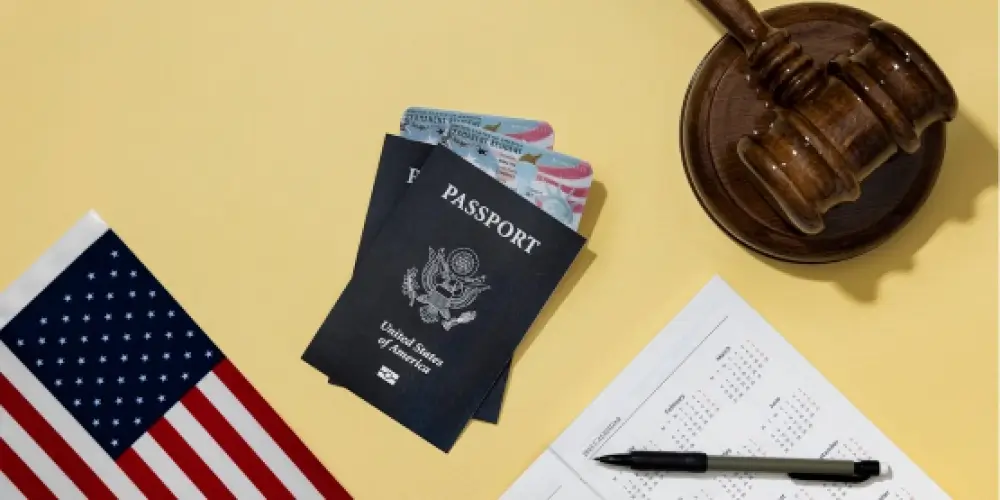

Family-Based Immigration: Sponsoring Family Members for Immigration
19/05/2024 Wendy Parker 1219
Family-based immigration serves as a fundamental pathway for individuals to reunite with their family members in another country, fostering familial unity and support across borders. This process allows citizens and lawful permanent residents (LPRs) of a country to sponsor certain family members to immigrate and join them. Understanding the nuances of family-based immigration, including eligibility criteria, application procedures, and legal obligations, is crucial for both sponsors and beneficiaries seeking to navigate these complex processes effectively.
What is Family-Based Immigration?
Family-based immigration refers to the process of sponsoring and obtaining immigration status for family members to reside permanently in a country. It is a means of reuniting families separated by international borders and enabling them to live together and contribute to their new communities. This immigration category recognizes the importance of family ties and supports the emotional and social well-being of families.
Categories of Family-Based Immigration
Immediate Relatives
Immediate relatives are considered the highest preference category for family-based immigration due to their close familial relationships with the sponsor. In the United States, immediate relatives include:
-
Spouses: Legally married spouses of U.S. citizens or LPRs.
-
Children: Unmarried children under the age of 21 of U.S. citizens.
-
Parents: Parents of adult U.S. citizens (petitioner must be at least 21 years old).
Immediate relatives face shorter processing times and do not have to wait for visa availability, making this category the fastest way to reunite with family members.
Preferred Relatives (Family Preference Categories)
Family preference categories encompass more distant familial relationships and have specific numerical limits on annual visa allocations. These categories include:
-
F1 - Unmarried Sons and Daughters of U.S. Citizens: Adult, unmarried children (21 years or older) of U.S. citizens.
-
F2A - Spouses and Children of LPRs: Spouses and unmarried children (under 21) of LPRs.
-
F2B - Unmarried Sons and Daughters (21 years or older) of LPRs: Adult, unmarried children of LPRs.
-
F3 - Married Sons and Daughters of U.S. Citizens: Married adult children of U.S. citizens.
-
F4 - Brothers and Sisters of Adult U.S. Citizens: Adult siblings of U.S. citizens (petitioner must be at least 21 years old).
Eligibility and Requirements
To sponsor a family member for immigration, sponsors (petitioners) must typically meet the following criteria:
-
Citizenship or LPR Status: Sponsors must be either citizens or lawful permanent residents of the country where they are applying to bring their family member.
-
Relationship: Sponsors must have a qualifying familial relationship with the intended beneficiary.
-
Financial Support: Sponsors often need to demonstrate the ability to financially support the family member and ensure they will not become a public charge.
-
Legal Obligations: Sponsors must commit to supporting their family member both financially and emotionally, as well as ensuring their integration into the community.
Process of Sponsoring Family Members
The process of sponsoring family members typically involves the following steps:
-
File Petition (Form I-130): The sponsor initiates the process by filing Form I-130 (Petition for Alien Relative) with the immigration authorities, establishing the familial relationship and their intention to sponsor the family member.
-
Approval of Petition: Upon approval of the petition, the case is forwarded to the National Visa Center (NVC) for further processing.
-
Visa Availability: For preference categories (non-immediate relatives), beneficiaries must wait for an available visa based on the priority date established by the petition filing date.
-
Application for Immigrant Visa or Adjustment of Status: Beneficiaries living abroad apply for an immigrant visa at a U.S. embassy or consulate, while those already in the country may apply for adjustment of status to become lawful permanent residents.
-
Interview and Approval: Beneficiaries undergo an interview to assess their eligibility and admissibility. If approved, they receive their immigrant visa or adjustment of status, granting them lawful permanent residence (green card) in the United States.
Importance of Understanding Legal Requirements
Understanding the legal requirements and documentation necessary for sponsoring a family member is crucial to navigating the immigration process successfully. This includes providing accurate information, submitting required forms and fees, and preparing for interviews and background checks. Failure to comply with immigration laws or provide necessary documentation can lead to delays, denials, or even legal consequences.
Family-based immigration plays a vital role in reuniting families and fostering social cohesion across borders. By sponsoring eligible family members, individuals can bring loved ones together, support their integration into a new country, and contribute to their shared future. Understanding the different categories of family-based immigration, eligibility criteria, application procedures, and legal obligations empowers sponsors and beneficiaries to navigate the process effectively and achieve their goal of family reunification. As such, fostering a balanced approach that meets the needs of both migrants and receiving societies.
Recent Blogs
Building a Diversified Inves ...
26/01/2025 1834
Integrating AI and Machine L ...
24/01/2025 1394
Health Insurance Regulations ...
22/01/2025 2453
Recognizing Signs of Mental ...
20/01/2025 2474
Understanding Employers' Leg ...
18/01/2025 1412
Trending Blogs
Interest Rates: How They Aff ...
20/06/2024 12713
Client Retention: Building S ...
20/06/2024 10761
Introduction to Common Law: ...
21/06/2024 9828
Common Types of Criminal Charges
02/03/2024 8997
Corporate Finance Law: Raisi ...
04/06/2024 8728











